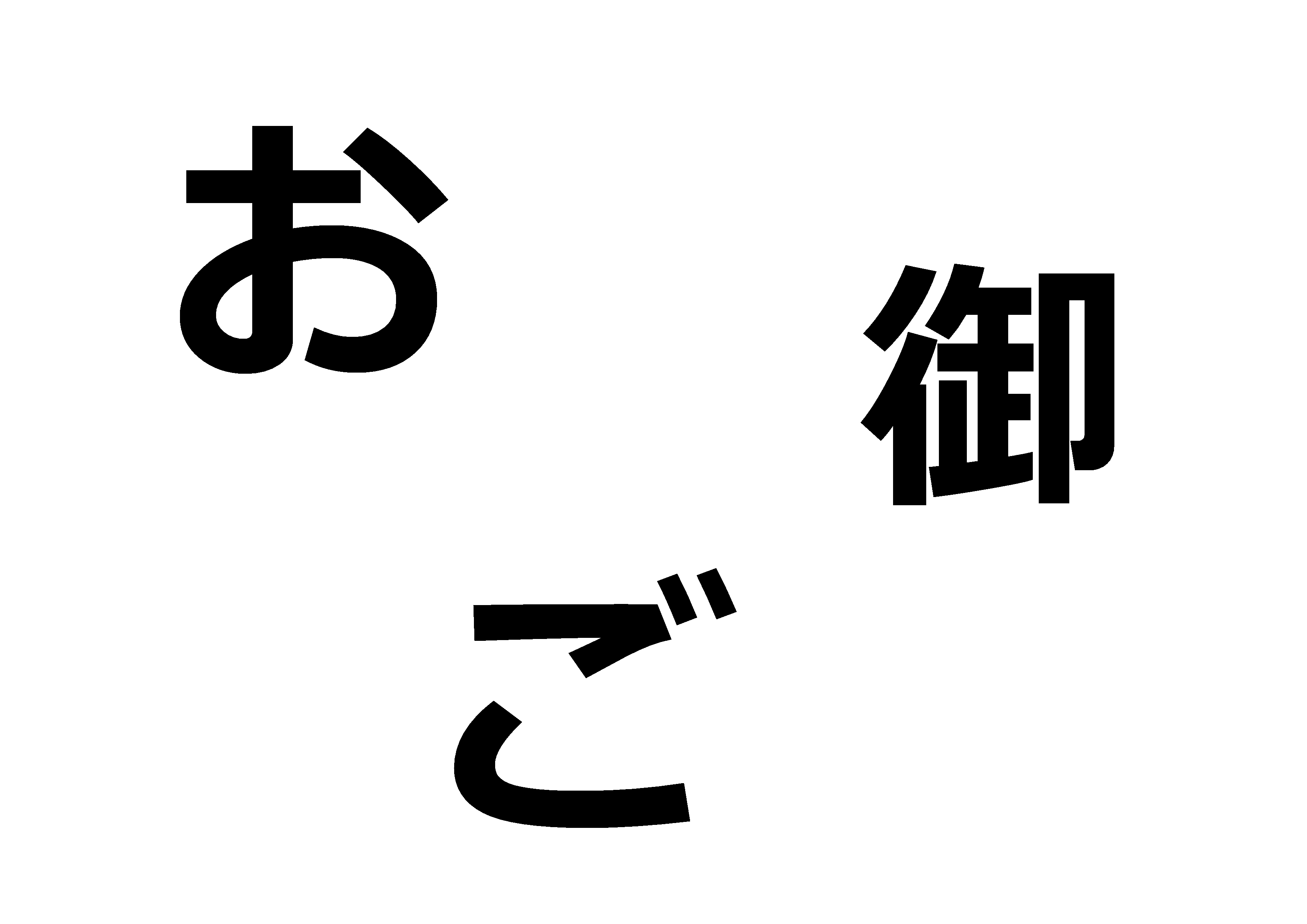Today’s theme is politeness Expression in Japanese. In Japanese words and phrases, you often see the letters “お (O-)”, “ご (Go-)” and “御 (※ It has many different readings)”, don’t you? These letters may or may not be attached to the beginning of the word or phrase, even though they have the same meaning… We often use the “お (O-)”, “ご (Go-)” and “御” in articles or comics on this site. For example… In the case of “お (O-)”… “お菓子 (O-Kashi)”, “お金 (O-Kane)”, “お前 (O-Mae)” etc. In the case of “ご (Go-)”… “ご飯 (Go-Han)”, “ご機嫌 (Go-Kigen)”, “ご用 (Go-Yo)”… The letters “御” has many different readings, “お (O-)”, “ご (Go-)”, “おん (On-)”, “み (Mi-)” and etc. Well, if you’re not used to reading Japanese to some extent, it can be a bit difficult to understand, isn’t it?
※”お菓子”→”candy”、”お金”→”money”、”お前”→”you”、”ご飯”→”cooked rice”、”ご機嫌”→”mood or feeling”、”ご用”→”matters or elements”
These letters “お”, “ご” and “御” are added to the beginning of a word or phrase to make it sound “polite”. It’s so-called “honorific prefix”, or just “polite form”. It’s a kind of “honorific” or “respectful” letters. However, in a more precise meaning, we guess that it’s probably a bit more nuanced. It is an expression of “gratitude” for the word or phrase, as well as “appreciation” and “consideration” for the recipient of the word or phrase. So, even if you don’t use “お (O-)”, “ご (Go-)” and “御”, the meaning will be usually understood. However, the presence or absence of these letters can make a significant difference in the impression received by the recipient. If no using the letters “お (O-)”, “ご (Go-)” and “御”, it is easy for the receiver to get the impression that the speaker is “arrogant” or “high-handed. Or, it could give the impression of being rude depending on the situation, you can understand it that way. In such situations, the atmosphere of the conversation tends to become stiff, right? This can lead to a less than healthy mood and comfortable time for both. On the other hand, if both parties use just overly polite forms of expression, it will come off as uncomfortable in different ways… The reason why Japanese words and phrases often contain letters such as “お”, “ご”, “御”, etc. is probably to mitigate the negative effects of such uncomfortable situations and time. It could be said that the emphasis is on mutual consideration and caring, we guess. For such reasons, it seems that Japanese people tend to have the impression that it is difficult to understand clear assertions and principles, and it will be true that we have to agree that. However, these are undoubtedly the manifestations of Japan’s unique virtues.
We will be introducing many words and phrases with “お”, “ご”, “御” or etc. attached to them on this site in the future. We would be happy if you could keep them in a corner of your mind.
Just a piece of trivia~V( ̄▽ ̄)V
A polite form of saying “O-Misoshiru (miso soup)” is “Omiotsuke”. It’s written in Kanji characters as “御御御付け (O-Mi-O-Tsuke)”… Or, it can also be written as “御々々付け”. “々 (nomaten)” is a Kanji used for abbreviations when the same Kanji letter is written in succession. We’re not kidding, right? You might be thinking, “How much gratitude and consideration do you have for “Miso soup” and me?” or “Hey! Where’s the letter of “soup”?” Well, there are many theories about this… According to one theory, the first word “O-Mi-” means “miso”. And “O-Tsuke” is a polite form of saying “O-Suimono (one of Japanese soup dishes)” (※Some say it’s a female word). For each of these readings, a Kanji with a suitable meaning was assigned, and the result was “御御御付け”. It’s like all the words are said in a beautiful form, and the result is a ultra polite form of saying that, right…? Didn’t the someone think of applying other appropriate Kanji? You agree, don’t you?
※There is also a way to write “御味御汁”. This one looks more like “O-Misoshiru”, doesn’t it? Because the Kanji for “味” means “taste and flavor,” and “汁” means “soup”.




